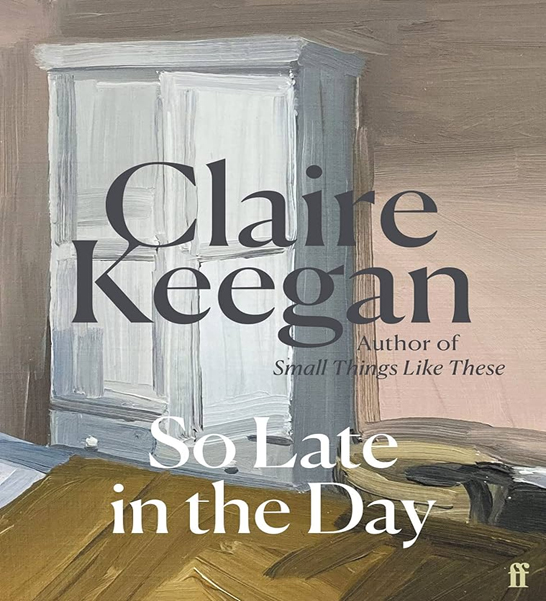“You know what’s at the heart of misogyny?… It’s simply about not giving…”
I love finding a short story that packs a punch…and Keegan’s So Late in the Day certainly knocks you off your feet.
Similarly to other short story authors, like Jhumpa Lahiri and Raymond Carver, Keegan’s work stirred the same contemplative sensations I felt from their collections.
So Late in the Day is a tactically subtle book that explores systematic misogyny. What I mean by ‘tactically subtle’ relates to Keegan’s use of language.
Instead of disclosing the obvious, she leaves fragmented insights into the characters’ beliefs, attitudes, and outer images.
In an interview with The Guardian, Keegan says “Elegance is saying just enough” and that “the reader completes the story.”
This small but strong piece of literature will surely shift or reignite your perception of misogyny and how it can impact the merest of things.
Synopsis
We are introduced to a man named Cathal and are taken through a day in his life. As Cathal bitterly commutes home, drinks leftover champagne, eats a phallic-shaped bachelor party cake and watches TV, his mind drifts to a woman, Sabine. The narrative traces Cathal’s memories of the years prior with her, showing a quick rise and even quicker fall of their relationship. We are left to piece together what happened to Cathal, who Sabine was and, ultimately, how he got into his current state. (Spoiler alert – his sexism…).
Throughout, Keegan explores systematically and inherently fixed misogyny through the lens of Cathal, showing its effect on women, like Sabine, Cathal’s mother and its strain on modern-day relationships.
Passed-down & Preserved Prejudice
Keegan successfully uncovers how misogyny is innate and preserved.
With insight into Cathal’s patriarchal upbringing, his maltreated mother who was bullied by her husband and sons, and his chauvinistic friendship group, Cathal is seen to be a pretty awful person and a “victim” of inherited misogyny.
Cathal feels the “shadow of his father” and reenacts his behaviours, as Cathal would “bottle it up, let it stew [and] say nothing”, thereby showing misogyny’s inherent nature.
Cathal’s latent inward reflections of his upbringing cleverly evoked the root of sexism whilst showing his avoidance and lack of accountability towards it – an attitude that is prevalent in this day and age.
Cathal’s Avoidance
Keegan’s simple and strategic writing shows his avoidance of giving himself fully to a romantic partner and questioning his slanted perceptions.
One quote stuck out to me that captures Cathal’s evasion towards seeing Sabine as an equal and someone to ‘share’ his life with: “That was part of the trouble: the fact she that she would not listen, and wanted to do a good half of things her own way.”
Even outside of his memories with Sabine, he avoids – he retreats to sleep, food, alcohol and television to bypass his culpability. He drifts half-assedly to realisation but would “not let his mind dwell” and returns to the sweet relief of denial.
As mentioned earlier, Cathal’s dismissal of his unfair treatment towards women highlights the deficit of self-obligation to change amongst misogynists.
Sabine
Cathal’s recollection of his ex-fiance speaks volumes on ingrained misogyny.
The protagonist feels frustrated with Sabine over small things—like her cooking leading to him having to wash up, moving her belongings into his apartment (after he asked her to), planning trips to see her family in Paris, and making decisions without consulting him first(I fear we all know someone like this).
These things weren’t malicious, weren’t selfish or gratuitous but instead unveiled Cathal’s own internalised misogyny and resentment towards Sabine’s individuality.
Conclusion
Overall, I found the succinct narrative juxtaposed with its expansive theme of misogyny incredibly effective and different to other narratives that tackle sexism.
The reason for my 5-star rating is that I love books that don’t give too much away and where the reader is left to assemble the hidden meanings.
I’ve already ordered the rest of Claire Keegan’s works and I cannot wait to decode each one.
Have you read this book?
We would love to hear your thoughts on this book, perhaps you agree with our review, or, disagree?





